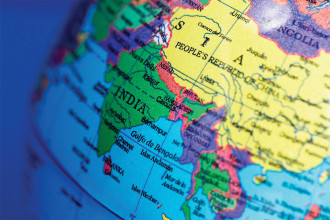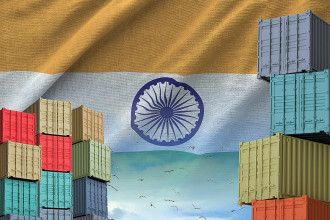
As kids and their dads from around the country celebrate Father‘s Day today, a good number of them will say hi to their dads using video software like Skype. Or perhaps it is Google hangouts, FB messenger video, Facetime, or Snapchat, or another several dozen services that help people connect by video in real time.
So today is a good day to pause for a second and consider the role of something like Skype in improving the well-being of so many people. We should also consider how that figures into debates about standards of living and inequality.
I am a big fan of measuring well-being and inequality by consumption, not income levels. After all, what matters about our incomes is what they enable us to do to improve our lives. You can‘t eat money, so what you are able to buy with it is what we should focus on. And as I‘ve argued before, even the poorest of Americans are able to buy consumption goods that were either way too expensive or non-existent just a generation or two ago.
 Steven Horwitz is the Charles A. Dana Professor of Economics at St. Lawrence University and the author of Hayek‘s Modern Family: Classical Liberalism and the Evolution of Social Institutions.
Steven Horwitz is the Charles A. Dana Professor of Economics at St. Lawrence University and the author of Hayek‘s Modern Family: Classical Liberalism and the Evolution of Social Institutions.
The poorest of the developed world live longer, healthier lives in more comfort than did most kings of old. The differences between rich and poor today are much narrower than ever before, particularly if we think in terms of what they are able to consume. But even standard measures of consumption inequality dramatically understate well-being – if we measure differences in consumption by the prices people pay or the expenditures people make, or even the number of the various consumer items they have in their homes. If we want to talk about well-being, we need to think in terms of the utility that various consumer goods provide us. And that utility is not always well-reflected by typical measures of consumption.Standard economic data do show us how much better Americans, both poor and middle class, live today than in the past. Measures of consumption show that the poor and middle class live more like the rich than they ever have before. Despite what you might hear or read, inequality measured that way has dropped.
Massive Life Improvement
So what of Skype? On the margin, its cost to the consumer is zero. It often comes pre-installed on computers, tablets, and smartphones. There‘s no cost to getting an account. And for audio and video calls over the web, there‘s no marginal cost. In fact, something like Skype is not even considered in the ways economists typically measure consumption. Now consider all of the people whose lives are made immensely better by the ability to see and hear in real time their friends, colleagues, and family around the world. Consider the military moms and dads who can stay in touch with their spouses and kids from halfway around the world. Or the grandparents who live hundreds of miles away.Or the lovers similarly separated.
Think about the number of productive conversations among professional partners who plan all kinds of projects. The online book clubs. The video conferences that saved young parents traveling away from their kids, or that provided people the time to spend doing more productive things. Consider the ability for a Western scholar to present classical liberal ideas to a group of African students in Ghana. Think about the brother and the friend unable to attend a wedding who could still feel somewhat present thanks to Skype. I could go on, but the point is made. It would be an impossible task to figure out exactly what the utility gains are to Skype users, but they are surely enormous. Think of it this way: if you had to pay to use Skype or other video software, how much would you be willing to pay? The answer is certainly greater than zero, as losing the ability to connect this way would significantly diminish the lives of many. But because we don‘t explicitly pay for it, and because we can‘t measure the subjective value that users get from it, we don‘t have a more concrete way to know just how much something like Skype has improved the lives of so many people. If we consider its role in our own lives, or talk to those for whom communication by Skype has made the world so much smaller in such an important and humanizing way, we can see much better the positive effect it has had for so many of us.Beyond Price
Standard economic data do show us how much better Americans, both poor and middle class, live today than in the past. Measures of consumption show that the poor and middle class live more like the rich than they ever have before. Despite what you might hear or read, inequality measured that way has dropped. But these measures still underestimate the improvements in well-being that modern life has brought for us all. The human connections and happiness that communication technology has made possible are indeed a gift beyond price, almost free. Steven Horwitz is the Charles A. Dana Professor of Economics at St. Lawrence University and the author of Hayek‘s Modern Family: Classical Liberalism and the Evolution of Social Institutions.
Steven Horwitz is the Charles A. Dana Professor of Economics at St. Lawrence University and the author of Hayek‘s Modern Family: Classical Liberalism and the Evolution of Social Institutions.
Published Date: July 17, 2016, 12:00 am
Post Comment
E-Magazine
RELATED Economics




-1758107444.jpg)
